5 Must-Check Features When Choosing a Reliable Desktop USB Hub Supplier
5 Must-Check Features When Choosing a Reliable Desktop USB Hub Supplier
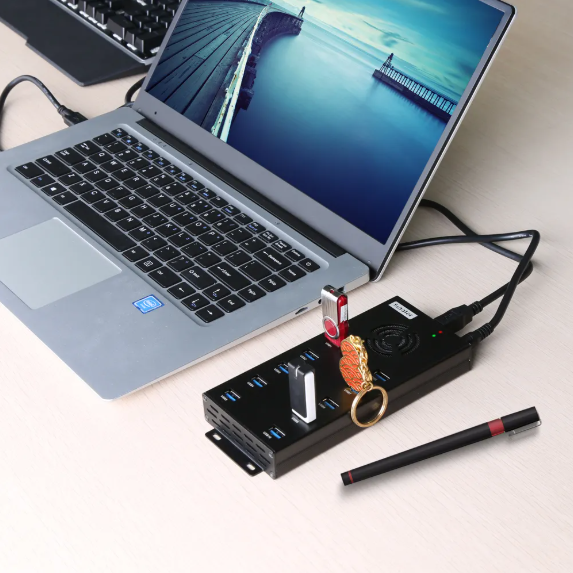
In today’s connected workspace, a high-quality USB hub is no longer a luxury—it’s a necessity. Whether you’re a procurement manager sourcing for your company or a distributor looking for reliable inventory, choosing the right supplier can make or break your product’s success.
At our company, we’ve helped over 200 global clients streamline their USB hub sourcing with OEM/ODM solutions. Based on industry insights, here are 5 non-negotiable features to evaluate before partnering with a USB hub manufacturer:
1. Port Configuration & Compatibility
Why it matters: Not all USB hubs are created equal. A 4-port hub might suffice for home use, but offices and gaming setups often need 7+ ports with mixed USB-A/USB-C options.
Key questions to ask your supplier:
- Do they offer Type-C charging ports (e.g., PD 100W) for modern laptops?
- Are ports backward-compatible with USB 2.0/3.0 devices?
- Can they customize port layouts (e.g., vertical vs. horizontal designs)?
Pro Tip: Look for smart charging technology (e.g., auto-detection of device power needs) to avoid overloading circuits.
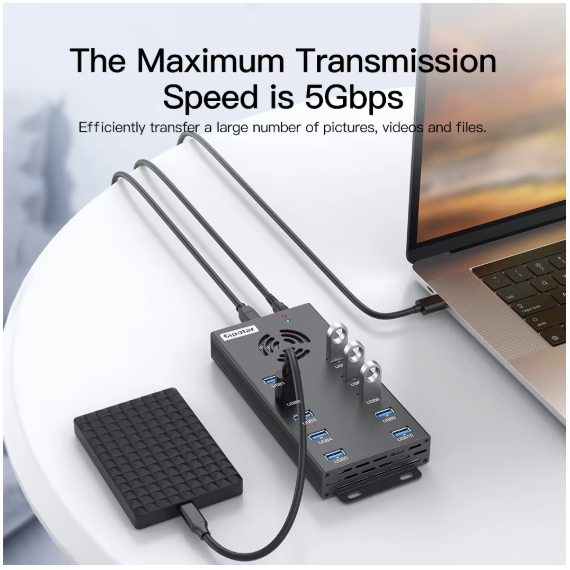
2. Build Quality & Durability
The problem: Cheap hubs overheat, lose connectivity, or fail within months—costing you returns and reputation.
What to verify:
- Materials: Aluminum housings dissipate heat better than plastic.
- Certifications: UL, CE, RoHS, or FCC compliance ensures safety and longevity.
- Stress-testing: Ask for MTBF (Mean Time Between Failures) data or warranty terms.
Example: Our Product undergoes 72-hour continuous load testing to guarantee stable performance under heavy use.
3. Data Transfer Speeds
Don’t fall for vague claims like “high-speed”—demand specifics:
- USB 3.0/3.2 Gen 1: 5Gbps (suitable for documents/peripherals).
- USB 3.2 Gen 2: 10Gbps (ideal for 4K video or external SSDs).
- Avoid bottlenecks: Ensure the hub’s chipset (e.g., VIA, Realtek) supports advertised speeds.
Case Study: A European retailer reduced customer complaints by 40% after switching to our 10Gbps hubs for their gaming accessory line.
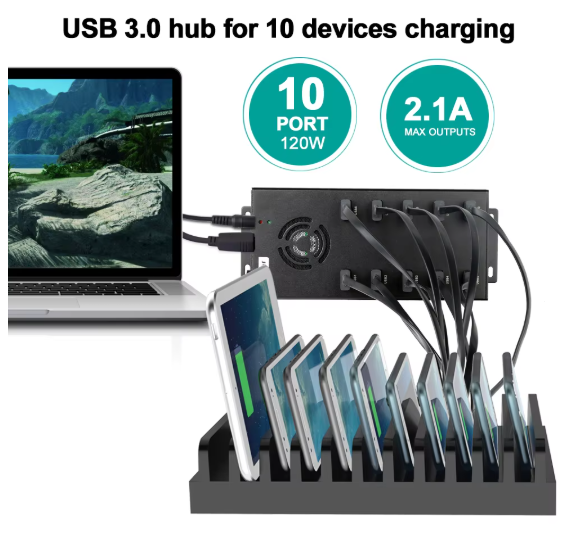
4. Power Delivery (PD) Capability
Critical for modern devices: Laptops, tablets, and phones need fast, stable power.
Check:
- PD output (e.g., 60W vs. 100W) and compatibility with brands like MacBook or Dell.
- Overcurrent/overvoltage protection to prevent device damage.
- Simultaneous charging (e.g., can all ports deliver max power at once?).
Note: Some suppliers use low-cost ICs that throttle power—always request test reports.
5. Customization & MOQ Flexibility
Why it’s a dealbreaker: Off-the-shelf hubs rarely match brand aesthetics or niche market needs.
Ask your supplier:
- Can they tweak LED colors, logos, or cable lengths?
- What’s their minimum order quantity (MOQ)? (e.g., 500pcs vs. 10,000pcs).
- Do they assist with packaging design or compliance labeling?
Our Approach: We offer MOQs as low as 100 units for startups, with 3-week rapid prototyping.
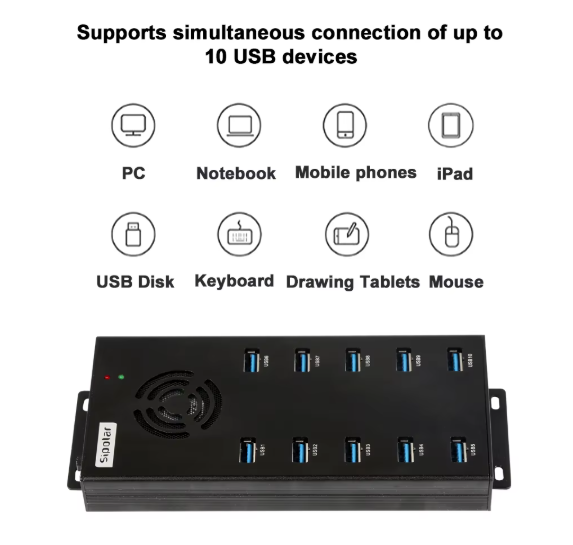
Conclusion: Partner with Confidence
A reliable USB hub supplier should educate you, not just sell. At our company, we combine 15+ years of manufacturing expertise with transparent communication to deliver hubs that reduce returns, boost reviews, and keep clients coming back.
#USBHub #ElectronicsManufacturing #OEMSupplier #B2B
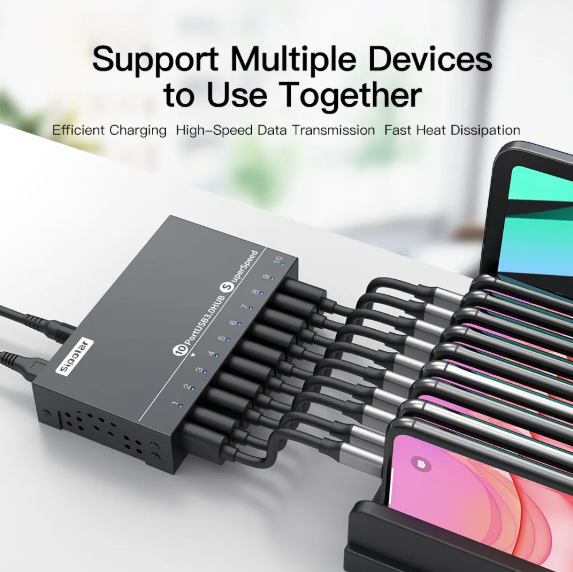 Behind the Scenes: How our brand USB Hub Ensures Quality in Every USB Hub
Behind the Scenes: How our brand USB Hub Ensures Quality in Every USB Hub
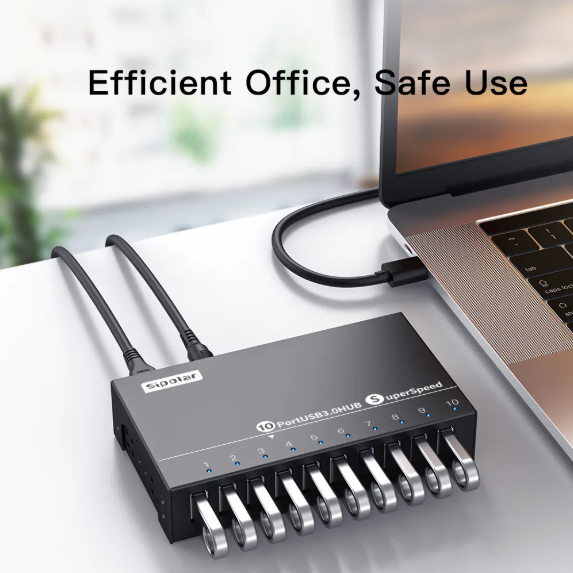 OEM/ODM USB Hubs: How We Customize Solutions for Global Brands (and Survived a Berlin Fire Drill)
OEM/ODM USB Hubs: How We Customize Solutions for Global Brands (and Survived a Berlin Fire Drill)
 The Future of USB Hubs: Trends in Type-C, Fast Charging, and Smart Power Management
The Future of USB Hubs: Trends in Type-C, Fast Charging, and Smart Power Management
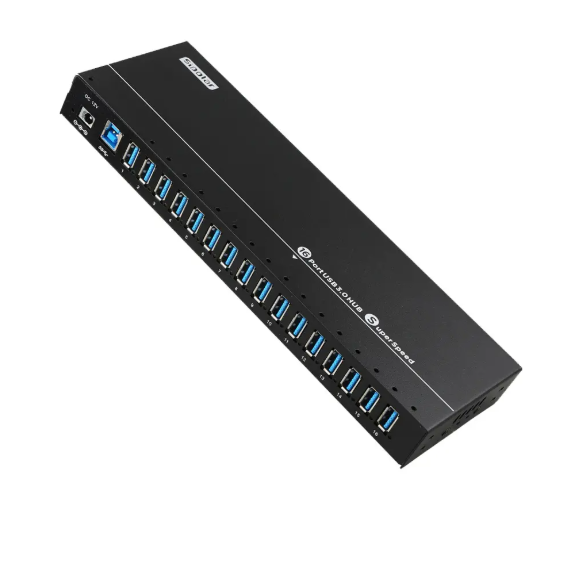 How Our Multi-Port USB Hubs Solve Connectivity Issues for Offices & Cafés
How Our Multi-Port USB Hubs Solve Connectivity Issues for Offices & Cafés

